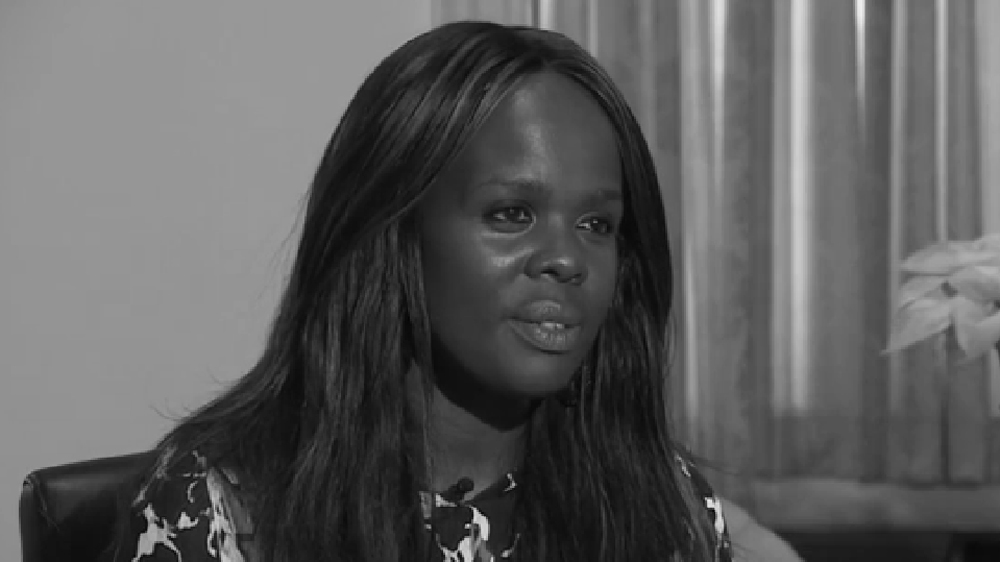Nigeria heads back to polls after extension of voting
Technical issues force presidential poll into second day, after record number of people vote despite Boko Haram threats.

Voters who were unable to cast their ballot because of technical problems in Nigeria’s general election have returned to the polls, as the main parties traded accusations over the use of the technology.
The country’s electoral commission said some 300 of the 150,000 polling stations would be open on Sunday to accredit voters after handheld devices to read biometric identity cards failed.
Keep reading
list of 4 itemsTen years after ‘Bring Back Our Girls,’ Nigeria’s kidnappings continue
Why mass kidnappings still plague Nigeria a decade after Chibok abductions
Children kidnapped in northern Nigeria have been freed
Nigeria’s ruling Peoples Democratic Party (PDP) called the situation a “huge national embarrassment” after President Goodluck Jonathan was affected by the malfunction as he tried to register on Saturday.
| Analysis from our correspondent |
|
If Nigerians are unhappy with their leaders, can they vote them out in a peaceful, free and transparent way? That’s the test of Saturday’s Presidential and parliamentary elections in Africa’s largest democracy. If they do vote out President Goodluck Jonathan, and the ruling People’s Democratic Party which has ruled Nigeria for 16 years, since the end of military rule, it would be the first peaceful handover of power from one democrat to another in the country’s history. In this case – to the key presidential opposition candidate, Muhammadu Buhari of the All Progressives Congress. More than $40m has been spent on these elections by the election commission. Close to 60 million people have collected voter cards to participate. And there are more than 120,000 polling stations around the country. The winner in the presidential race needs 50% of the vote plus 1. And at least 25% of the vote in 2/3rds of the country’s 36 states to win. And thousands of parliamentarian running for around 500 seats, a simple majority. It’s a colossal logistical challenge – in a country with porous borders and uneven infrastructure. But the voters we met at polling stations in Abuja were not put off. People seem resolute in their determination to participate in this election, despite long hours waiting to be accredited, and even longer hours waiting to vote. Follow Yvonne Ndege for the latest updates on Nigeria’s elections @YvonneNdeg |
The ruling party said repeatedly throughout the campaign that the technology should not be used as it was untested and there were questions about officials’ ability to use it.
Attahiru Jega, the chairman of the Independent National Electoral Commission (INEC), said that the problems were limited to “only about 450” card readers.
However, he said that he was concerned about allegations of irregularities in voting in the southern, oil producing Rivers state, where hundreds of opposition supporters have been protesting.
Jega told a news conference in the capital Abuja that the electoral authorities were investigating the complaints, which centred on opposition party agents being excluded from a vote-tallying meeting.
“The opposition says what is happening in the Rivers state is the beginning of the ruling party trying to steal the elections,” Al Jazeera’s Yvonne Nedge, reporting from Abuja, said.
On Saturday, many voters had camped overnight or arrived early at polling stations to have their credentials checked before returning to vote in the afternoon and long into the night.
RELATED: Electronic accreditation frustrates Nigeria voters
Boko Haram loomed large, seeking to disrupt what it sees as the “un-Islamic” elections by launching a series of attacks.
Violence affected areas in the country’s restive northeast both prior to, and during, polling on Saturday, with the Associated Press news agency reporting that at least 41 people were killed by suspected Boko Haram fighters.
The rebels invaded the town of Miringa in Borno state, burning people’s homes and then shooting them as they tried to escape the smoke. Twenty-five people died in the attack, Borno state Governor Kashim Shettima said.
Another 14 people were killed in attacks on the town of Biri and Dukku, in Gombe state, according to police and local chief, Garkuwan Dukku.
Two voters were killed in Boko Haram attacks on polling stations in the twin Gombe towns of Birin Bolawa and Birin Fulani, according to police.
PROFILES: Goodluck Jonathan and Muhammadu Buhari
Jonathan, who became president in 2010 after succeeding Umaru Yaradua who died in office before completing his term, is contesting his second election. He comes from the predominantly Christian south while his challenger Buhari, who seized power in the 1980s, is from the mainly Muslim north.
Jonathan’s PDP has ruled Africa’s most populous nation virtually unopposed for 16 years.
But it is possible he could lose to Buhari, who has contested three previous elections but never come close to victory before.
 Al Jazeera’s Yvonne Ndege
Al Jazeera’s Yvonne Ndege